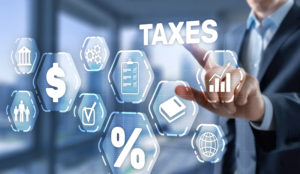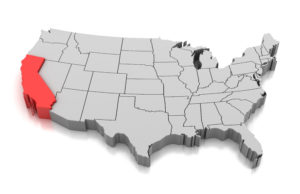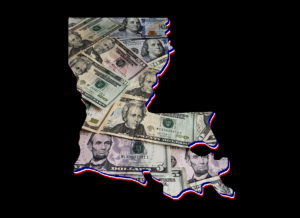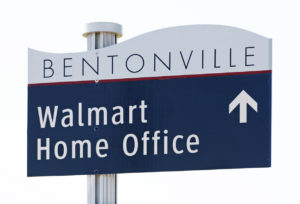Service Sales Tax By State: Important Things To Know
According to Focus Economics' recent economic forecast, the services sector is the main engine of our economy in the United States. Since service-oriented companies are such a large part of our economy, we thought it would be beneficial to look at how services are taxed in different states across the country.
Are Services Subject to Sales Tax?
When we think of sales tax, most people assume that only the sales of tangible goods are subject to it. Most state laws are written to assume that sales of tangible personal property are subject to sales tax unless there is a specific exemption (there can be many!) and laws for sales of services are written to assume that services are exempt unless specifically enumerated. So historically, while it certainly varies by state, few services were subject to sales tax.
Right now, states tend to tax only specific services. This may seem surprising, because this tax could be a huge way to increase economic revenue. There is a lot of discussion at state legislative levels to increase the tax base to include more services. While this may be true, Scott Peterson, vice president of government relations at Avalara, shares that the complex part of tax policy change isn't the amount of money that new legislation will produce, it is balancing who will take on the tax burdens. This may be why legislation to tax services has been introduced but has not always passed. While no two states currently tax services in the same way, Avalara divides the general types of services being taxed into six categories.
- Services related to the sale of tangible personal property (TPP). This typically means services that improve or repair property such as car repair or carpentry services.
- Services to real property including landscaping and janitorial work.
- Services performed for companies and businesses fall into this category, including credit reporting agencies and telephone answering services.
- Personal services, which includes services that offer personal grooming or other types of "self-improvement". Tanning salons and animal grooming services would fit under this category.
- Professional services including physicians, accountants and other licensed professionals.
- Amusement/recreation services is the last category. This includes admission to amusement parks and other types of entertainment.
Even if two states have tax legislation in the same category, the legislation can look drastically different between the two and the devil is always in the details. Keep reading to learn more about some specific states' service sales tax legislation.
Potential New Service Tax In Nebraska
If bill LBB 422 is passed in Nebraska, more services would be subject to sales tax and the sales tax rate would be lowered as well. Services that would be taxed if the bill is passed include dry cleaning, interior design and investment advice. If passed, the legislation would take effect in November of this year.
Indiana Service Tax Updates
Another state that could potentially introduce service sales tax legislation is Indiana. If Senate Bill 372 is passed, sales tax would apply to most services in the state starting January 2023. This would include "any activity engaged in for another person, if the person purchases the service as the end user of the service for consideration."
The services exempt from sales tax would include B2B transactions, government services and services rendered by an employee.
Current Service Tax Legislation In California
California does not generally collect sales tax on services, except for when the service is "inseparable from the sale of a physical product." This can include the setup of a purchased machine or other assembly purchases. We see this frequently in the complex rules of "fabrication" labor. There are some nuances in these rules that delineate the differences between non-taxable repair and taxable fabrication.
What To Expect For Service Tax Legislation In Other States
Currently, Hawaii, New Mexico and South Dakota are the only states that tax all but specified services, as their models are more gross receipts based, so there is a lot of room for service sales tax legislation in other states. We will keep you up to date with our blog!
Do You Need Help With Your State Sales Tax Compliance?
State tax legislation is complex and varies state to state. Working with an experienced team of state tax consultants like Miles Consulting Group is a great way to ensure you meet all of your sales tax obligations. If you have questions about your tax liability or have any other state sales tax compliance questions, please contact us today. We're happy to clarify any multi-state tax issues you're trying to navigate.
Important Updates California Taxpayers Need To Know About Unclaimed Property
Unclaimed property is not an area that we normally focus on at Miles Consulting, but we have received questions due to its relationship with state tax. In this article, we discuss what unclaimed property is and new California updates that taxpayers should be aware of.
What Is Unclaimed Property?
Before we discuss the new unclaimed property updates in California, it is important to have a clear understanding of what unclaimed property is. All 50 states currently have unclaimed property (sometimes also referred to as escheat) legislation. Simply put, unclaimed property is when a company has an outstanding debt that has not been claimed by the rightful recipient. When this happens, the state will help recover it. This subsequently creates a huge hassle for the companies.
Unclaimed property is typically seen in banking, where an account will go delinquent if there is no activity. The bank will then try to find the account holder, but if they are not able to they still have to do something with the funds. They turn them over to the state for safekeeping on behalf of the account holder. The state will publish lists of unclaimed property that people can check. Eventually, if the person is not found, the state gets to keep the money. We also see this in non-banking situations with companies and payroll checks. Imagine you get a check from your company for $35. Maybe it is your last check from the business and you never cash it in because you lose it. Technically, your employer can't just void it and keep the money. They need to make multiple attempts to try and get it to you. The onus is on the business to make multiple attempts to contact the rightful owner. If that isn't successful, they need to send it to the state as unclaimed property. As you can imagine, from a business's standpoint, trying to keep track of such items can be quite cumbersome. "Debts" like this can often pile up for years - which can create a problem for a company if the state ever comes out to audit.
According to NBC, California currently holds $9.3 billion in unclaimed property and is urging residents to check if they have a claim.
Here is a link in California where you can see if you are owed any money, as well as some more information regarding unclaimed property. There is no time limit or fee for filing a claim, and some of the simpler claims can be filed in as little as two weeks.
California Unclaimed Property Updates
The California Franchise Tax Board (FTB) is requiring certain business taxpayers to report their unclaimed property compliance when filing their 2021 business tax returns. The legislation authorizes the FTB to share the information with the State Controller's Office (SCO) to aid in its enforcement of unclaimed property laws.
California A.B.466 was enacted on July 16, 2021 and amends the state's income tax disclosure provisions to allow the FTB to provide the SCO with certain taxpayer information. Following this authorization, the FTB announced that it would add the following questions to its corporate, partnership and LLC tax returns:
- Has this business entity previously filed an Unclaimed Property Holder Remit Report with the State Controller's Office?
- If you answered with a yes, when was the report filed?
- What was the amount last remitted?
According to the bill analysis, there has been low reporting under the current unclaimed property laws, and as such, "..the SCO estimates that businesses could be holding more than $17.6 billion in unclaimed property." The SCO believes that compliance with the state's unclaimed property reporting laws is potentially as low as 2% of all businesses.
What Should You Do Next?
If you are a California business that has not filed an unclaimed property report, you may want to take an internal review to see your potential liability. Just like with all tax compliances, we recommend being proactive to see what your liabilities may be. If you do need assistance in this area, we can make a referral to one of our partners who may be able to assist.
Do You Need Help With Your State Sales Tax Compliance?
State tax legislation is complex, and working with an experienced team of state tax consultants like Miles Consulting Group is a great way to ensure you meet all of your sales tax obligations. If you have questions about your tax liability or have any other state sales tax compliance questions, please contact us today. We're happy to clarify any multi-state tax issues you're trying to navigate.
What's a "Reverse Sales Tax Audit?" And Why do you Care?- Part 2
Last month our blog on reverse audits highlighted the primary steps of a reverse audit, and why your company might benefit from one. This month we will touch on some of the procedural best practices and pitfalls as well as some specific points to consider when embarking on a reverse audit
Filing Claims for Refund
Many hours of good work put into a reverse audit can be wasted if the proper refund claims are not in place. Claims need to be filed timely. In California for example, the statute of limitations is three years from the due date of the return for the reporting period for which the asserted overpayment was made. However, if we again look at California as an example, we will need to determine the nature of the tax overpayment. If we are we talking about sales tax paid to a vendor in error, the period open for review is based on the vendor’s statute of limitations. If the vendor has an ongoing audit with waivers in place, you could have an extended claim period. If the tax in question is California use tax, whether use tax self-assessed or use tax paid to vendor, the claim period is based on the purchaser’s statute of limitations. There are numerous factors that come into play when asking the question was the claim filed timely.
Parish-By-Parish: A Helpful Guide To The Complex Louisiana Sales Tax System
If you have dealt with multi-state tax before, you know how varied and complex some state legislation can be. One state with a particularly complicated sales tax system is the lively state of Louisiana. In this blog article, we discuss what makes Louisiana's tax climate unique, as well as a recent lawsuit they faced because of it.
The Complexity Of The Louisiana Sales Tax System
In most states, your only requirement is to collect and remit sales tax based on the rate in the states you do business in. If you have sales tax compliance in Louisiana, however, not only do you have to collect and remit tax to the state, but you are also required to separately collect and remit sales tax in each individual parish (or county) that you do business in. There are 64 parishes in Louisiana, so it can become complex and time-consuming very quickly, especially for small businesses and businesses that already have multi-state tax obligations.
Louisiana also has the highest combined state and local sales tax rate in the United States, at 9.55%. The next two highest are Tennessee at 9.547% and Arkansas at 9.48%. Sometimes, particularly for small businesses, the time and money that extra sales tax compliances take can outweigh the benefits of selling products in the state.
Who Sued Louisiana And Why?
According to US News, Halstead Bead Inc., an Arizona-based company that sells jewelry-making products online, filed a federal lawsuit against Louisiana challenging the current tax system. They said that requiring out-of-state businesses to file reports in each parish they have sales in creates a "compliance nightmare."
Halstead Bead Inc. is asking the court to declare Louisiana's parish-by-parish sales tax system an unconstitutional burden on interstate commerce. In its lawsuit, which was filed in November 2021, the company said that it plans to limit sales in Louisiana until the regulations change.
The suit was filed only days after voters in Louisiana rejected a proposed amendment that would have replaced the parish-by-parish sales tax system with a single state system.
Stay caught up on our blog for updates to this story and any changes that Louisiana makes to their tax system.
Do You Need Help With Your State Sales Tax Compliance?
As you can see, state tax legislation is complex, and working with an experienced team of state tax consultants like Miles Consulting Group is a great way to ensure you meet all of your sales tax obligations. If you have questions about your tax liability or any other state sales tax compliance questions, please contact us today. We're happy to clarify any multi-state tax issues you're trying to navigate.
Focus on Arkansas
This month we travel to the southern state of Arkansas, the Natural State. It is known for its abundant parks and wilderness areas, with terrain encompassing mountains, caves, rivers and hot springs. The rugged Ozarks region in the northwest portion of the state has hiking trails and limestone caves, such as Blanchard Springs Caverns.
The state’s diverse geography varies from mountain ranges from the Ozark and the Ouachita Mountains, which make up the U.S. Interior Highlands, to the densely forested land in the south known as the Arkansas Timberlands, to the eastern lowlands along the Mississippi River and the Arkansas Delta.
Arkansas’s enduring image has earned the state “a special place in the American consciousness.” People such as politician and educational advocate William Fulbright, former President Bill Clinton, former secretary of state Hillary Clinton, former NATO supreme Allied Commander General Wesley Clark, Walmart magnate Sam Walton, singer-songwriters Johnny Cash and Glen Campbell, the poet C.D. Wright, and physicist William L. McMillan, who was a pioneer in superconductor research, have all lived in Arkansas.
Love And Taxes: How Are Your Favorite Valentine's Day Products Taxed?
Romantic dinners, bouquets or chocolates - how are you spending Valentine's Day this year? As we approach the holiday of love, we thought it would be interesting to see how sales tax applies to different products or situations you may encounter!
Gifts: Taxable Or Not?
Are you thinking of getting your valentine a box of chocolate, candy or other food gift this year? Food and candy sales tax varies depending on the state. What you pay in taxes in one state for a box of chocolates will be completely different in another. One of our latest blog articles dives into specific state tax rates on candy.
If you buy them another sort of gift, such as a stuffed animal or flowers from a brick and mortar store, your local state sales tax will apply to that item. Again, state sales tax varies.
If you buy the gift online, you will most likely have to pay sales tax, thanks to the 2018 Supreme Court Case, South Dakota v. Wayfair, Inc. Every state that has sales tax now has implemented some level of economic nexus. Oh, and shipping? Yes, maybe sales tax is due on that fee as well - depends on the state and how it's stated on the invoice.
Event Tickets
Taking your valentine to a ticketed event like a sports game or show? You will be charged sales tax based on the state that it is in. If you are attending an online event - which has gained popularity throughout the COVID-19 pandemic - it gets a little trickier since often people from any state can attend. So which state's sales tax rate are you charged? Though there is not one clear answer to this question, most of the time you will be taxed the rate from wherever the virtual event is "held." This article dives deeper into the topic of virtual events and sales tax.
Romantic Dinner & Sales Tax
If you decide to cook a romantic dinner at home, it will most likely not be taxed - though 13 states still do charge at least a slight sales tax on groceries.
Going out is a different story. If you decide to dine in a restaurant, or get takeout, you will be taxed at different rates and for different items depending on the state.
This article has a guide to state-by-state to-go, restaurant and grocery sales tax, but here are a few examples of state requirements:
- In our home state of California, most taxable sales at a restaurant are going to be of food and beverages - however in some instances you are charged sales tax on corkage fees, cover charges and other things.
- Prepared food is taxable in Washington.
- "Restaurant-type food" is taxable in New York. This includes food sold at a restaurant or similar establishment in a form ready to be eaten. For example, a bag of bagels would not be taxable, but a sliced, ready-to-eat bagel would be.
Still Looking?
Still firming up who your valentine might be for the big day? If you subscribe to online dating apps, you may be charged sales tax on the monthly charge for the app. Sometimes apps like that decide to cover the sales tax themselves, rather than to charge it through to the customer.
As you can see, sales tax gets complicated quickly and typically varies by state. Don't worry about it too much this week, and enjoy Valentine's Day with your loved ones. Our team of experts can help determine your tax liabilities after the holiday! But all kidding (and arrows and cupids) aside, these issues get complicated if you are the seller of these items. Buyers tend to have to grin and bear the imposition of sales tax. But the responsibility to collect is on the seller of taxable items. It's so important to get that right, because when you sell directly to consumers, you really only have that one opportunity to get the sales tax collection right. If the seller doesn't collect sales tax correctly, the burden of the tax itself can be shifted to the seller. That's often where clients seek our advice!
Do You Have Other Sales Tax Questions?
Since state tax legislation is constantly changing, working with an experienced team of state tax consultants like Miles Consulting Group is a great way to ensure you are meeting all of your sales tax obligations. If you have questions about your tax liability or any other state sales tax compliance questions, please contact us today. We're happy to clarify any multi-state tax issues you're trying to navigate.
What's a "Reverse Sales Tax Audit"? And Why do you Care?
Thank you to our newest team member, Greg Weston, for contributing this month’s blog. Greg has many years of experience in finding sales tax refunds for companies, and putting that money back in their pockets! Read below to find out about reverse sales tax audits and to see if your company might be a candidate.
When a taxing authority performs a sales and use tax audit, their primary audit objectives are to review the taxpayer’s purchases and assess tax on underreported purchases subject to use tax and on the sales side, to review the taxpayer’s claimed exempt sales and assess tax on unsupported claimed exempt sales. While the principles discussed below can be applied in part to sales, the focus here will be on the purchase side of the review. The objective of such a review is for a company to determine before or during an audit whether they may have some errors in their favor that might lead to a refund.
Everything You Need To Know About The 1099-K 2022 Tax Code Changes
 Selling handmade products on Etsy, online tutoring and web editing are a few side hustles many turned to throughout the COVID-19 pandemic. As a result of being laid off or not feeling safe to return to work, many people started the small businesses they always dreamed of. Consequently, the use of mobile payment apps such as Venmo or PayPal grew, as it was a convenient way to receive payment. In 2020 alone there were 900 million new mobile payment app users worldwide. One of the upsides of using these apps is the ability to receive payment and move the money into a personal account immediately.
Selling handmade products on Etsy, online tutoring and web editing are a few side hustles many turned to throughout the COVID-19 pandemic. As a result of being laid off or not feeling safe to return to work, many people started the small businesses they always dreamed of. Consequently, the use of mobile payment apps such as Venmo or PayPal grew, as it was a convenient way to receive payment. In 2020 alone there were 900 million new mobile payment app users worldwide. One of the upsides of using these apps is the ability to receive payment and move the money into a personal account immediately.
Another plus? In the past, you weren't required to report your earnings via mobile payment apps to the IRS unless you had at least 200 transactions exceeding $20,000 in total value. But starting January 1, 2022, if you make over $600 in transactions on goods and services, you will need to report your earnings for next year's filings in 2023. If you exceed this goods and services threshold, you will receive a 1099-K form.
The change to the tax code was signed into law as part of the American Rescue Plan Act, the Covid-19 response bill passed March 2021.
What Is The 1099-K Form?
According to the IRS website, the 1099-K form is an IRS information return used to report certain payment transactions to improve voluntary tax compliance.
Essentially, this form is a way for online retailers to submit their earnings. The company, such as Paypal or Venmo, will fill out a form on your behalf and you will get a copy as well.
While this is a federal tax code change, individual states have different reporting requirements.
Examples Of State's 1099-K Current Requirements
- Requires payment settlement entities, electronic payment facilitators or third parties that have contracted with a payment settlement entity to file the form with the Florida Department of Revenue within 30 days after the corresponding federal filing is due.
- Everyone who files a 1099-K must electronically file a copy with the Georgia Department of Revenue on or before the date it is due to the IRS.
While this is a change for the 2023 tax filing season, some states have already started implementing it. States that have already implemented the new tax code change include: Arkansas, Illinois, Maryland, Massachusetts, Mississippi, Missouri, New Jersey, Vermont, Virginia and Washington D.C.
Remember to stay ahead of your filing deadlines and liabilities, as tax legislation changes often. We frequently share tax code updates on our blog so you can stay up to date.
Do You Need Help With Your Tax Obligations?
Now is the time to get ahead on your state tax obligations, and working with an experienced team of tax consultants like Miles Consulting Group is a great way to ensure you are meeting all of your requirements. If you have questions about your tax liability or any other state sales tax compliance questions, please contact us today. We're happy to clarify any multi-state tax issues you're trying to navigate.
Focus on Vermont
The gold standard for fall foliage takes us to Vermont. With 75% of the state covered in forest and having the most land coverage of maple trees per capita, Vermont’s foliage season is the most vibrant. With its thousands of acres of alpine terrain, it is a popular destination for snowboarders and skiers. Trout fishing, lake fishing, ice fishing and hunting are also popular pastimes for residents and tourists alike. In the fall, hikers can catch some unforgettable views.
Vermont is attractive for more than just its environment. Vermont is also known for the manufacture and sale of artisan foods, fancy foods and novelty items such as Cabot Cheese, the Vermont Teddy Bear Company (where visitors can build their own Teddy Bear), Burton Snowboards and Ben and Jerry’s Ice Cream (where tours end by tasting your favorite flavor).
Goodbye 2021... Hello 2022!
Here we are at the end of December and this is the last blog of the year. I’m sure it’s cliché to ask “where has this year gone?”, but I’m going to do it anyway. 2020 introduced us to the complexities of working in a pandemic environment. And 2021 helped to reinforce that we can (fortunately or unfortunately) continue to do our jobs, network, and garner new clients without leaving the comfort of our homes. Maybe that’s why it feels as though the year sped by so quickly.
As we head into 2022, I like to reflect both on the year just ending, as well as to look forward into the new year and what it has to offer.




























